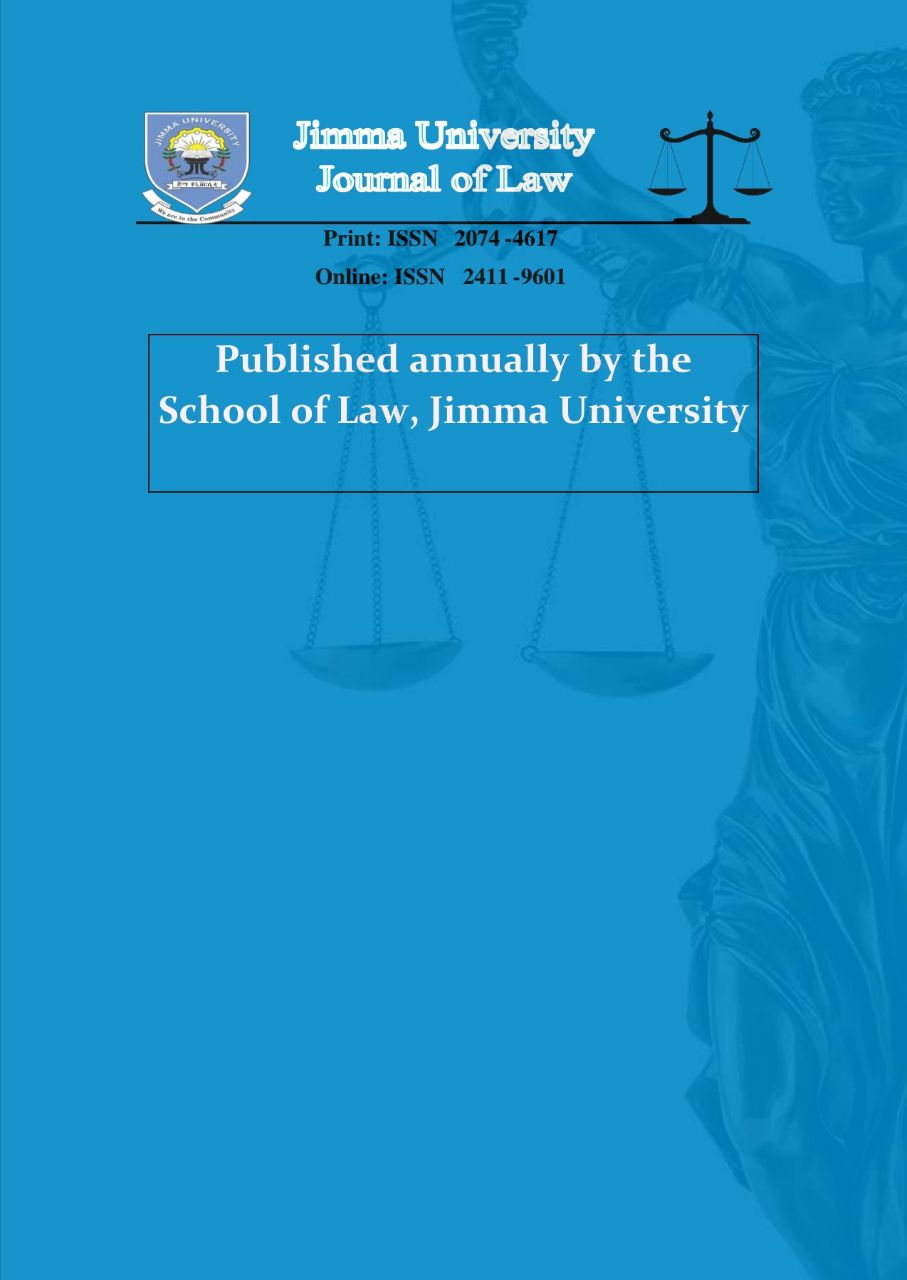Reversal of Burden of Proof in Case of the Crime of Illicit Enrichment: Appraisal of its Existence and Constitutionality in Ethiopia
Abstract
Akin to the international and regional anti-corruption instruments, many domestic jurisdictions have an unequivocally recognized crime of illicit enrichment as an anti-corruption kit. This fast and vast recognition, however, does not absolve it from controversy. The law on the crime of illicit enrichment, rather than demanding the public prosecutor to prove the asset in question is ill-gotten, it requires the accused to satisfactorily prove (in the Ethiopian context) how she/he amassed it. Therefore, it has become debatable whether this burden is a mere evidentiary burden or the shift of a legal burden of proof and hence constitutes a reversal of the onus of proof or not.
This author contends that the burden is a legal burden of proof and is not in tandem with the FDRE Constitution. It violates the constitutional provisions on the principle of presumption of innocence and protection against self-incrimination. However, unlike the often-accustomed recommendation, the author urges that the proclamation’s provision on the crime of illicit enrichment should not be nullified. To the author’s mind, the position of the detailed law is in line with the interest of the public and apt to fight the crime of corruption. It is also the opinion of the writer that the FDRE Constitution fails to foresee the nature of such special and complicated kinds of crimes. Therefore, the detail law provision on the crime of illicit enrichment shall be validated by amending the constitutional provisions that make it unconstitutional.




